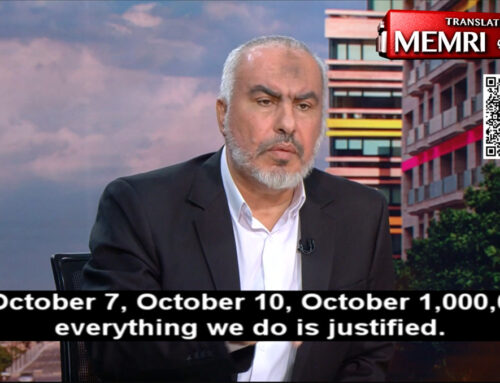The Judgment and Salvation of the Sovereign God in History
By Mark J. Larson
Reprinted from the May 2021 (Issue #692) The Banner of Truth Magazine
The New Testament concludes with the book of Revelation of Jesus Christ, also sometimes called the Apocalypse — from the word apocalupis, the first word of the Greek text of John’s prophecy. Here we find an unveiling, a disclosure of truth previously hidden or only dimly understood. A significant reality revealed by God in the Apocalypse relates to the real meaning of history. Many in our day allege that history has no rationale and is merely a random collection of chance events. Revelation affirms that the inner logic and coherence of history is to be found in the fact that all events — notably acts of judgment and salvation — are to be traced to the throne of God in heaven.
Most of the content of Revelation is traced back to a divine summons. There was a door standing open in heaven followed by a directive from God: “Come up here, and I will show you things which must take place after this” (Revelation 4:1). The summons placed John “in the Spirit.” One thing alone then captured his attention. “And behold, a throne was standing in heaven, and One sitting on the throne” (Revelation 4:2).
In the midst of the trials and afflictions of this world, we need to remember that God is ever on the throne. He always rules over all things as the Most High God. The seemingly incoherent events of our lives find their order and rationale as they are embraced within the plan of God.
Revelation also teaches that the meaning of history is to be further understood in terms of divine judgment and salvation. History is the arena in which the glory of God is displayed, both his punitive justice and his saving grace.
The Judgments of the Supreme Ruler
The reality of the great historical judgments of God is introduced in the symbolism of the scroll held in the hand of the great Monarch: “I saw in the right hand of him who sat on the throne a scroll written inside and on the back, sealed with seven seals” (Revelation 5:1). The scroll written within and without contains the King’s decrees of judgment which are to be measured out upon the world of unbelief and rebellion. As each seal is opened by Christ the Lamb of God, a successive judgment is unleashed upon fallen humanity that persists in ungodliness and impenitence.
The four horsemen of the Apocalypse illustrate John’s philosophy of divine retribution in history (Revelation 6:1-8). It is the Lamb of God who opens the first four seals and thus initiates catastrophic judgments that take place in history. John sees one horse after another. “I looked and behold, a white horse.” “Another horse, fiery red, went out.” “I looked, and behold, a black horse,” “I looked, and behold, a pale horse.” The horse in its longstanding connection with warfare is an appropriate symbol of the judgments of conquest and bloodshed, portrayed in succession by the white horse, and then the red one. The black horse is a fitting colour for the natural catastrophe of famine, while the pale horse conveys the idea of death resulting from multiple causes — sword, famine, pestilence, and ferocious wild animals.
The Mercy of Salvation from the Great King
Life in this fallen world, subjected to terrifying judgments from heaven, has been and will continue to be difficult. We may be grateful, though, that there is more to history than death and destruction. In the seventh chapter we are taught that in the midst of wrath, there will also be mercy. From among the Jews, 144,000 are sealed as the servants of God (Revelation 7:1-8). As to the Gentiles, the redemptive programme of God is staggering. The apostle states, “I looked, and behold, a great multitude which no one could number, of all nations, tribes, peoples, and tongues, standing before the throne and before the Lamb, clothed with white robes, with palm branches in their hands, and crying out with a loud voice, saying, ‘Salvation belongs to our God who sits on the throne, and to the Lamb'” (Revelation 7:9-10).
We need to remember in difficult days that God is saving a vast host of people and bringing them into his very presence, the place where “the Lamb who is in the midst of the throne will shepherd them and lead them to living fountains of waters” (Revelation 7:17).
The Most Important Question Ever
Revelation 6 unveils the distress of humanity in the day of wrath and revelation of the righteous judgment of God. A question will be raised by men guilty and broken when they realize that the day of the divine retribution has come upon them. They will cry out to the mountains and rocks: “Fall on us and hide us from the face of him who sits on the throne and from the wrath of the Lamb! For the great day of His wrath has come, and who is able to stand?” (Revelation 6:16-17).
Who is able to survive the experience of coming face to face with God? God is holy beyond conception. The four living creatures that surround the throne of God are ever focused upon his transcendent holiness: “they do not rest day or night, saying, ‘Holy, holy, holy, Lord God Almighty” (Revelation 4:8). Man in contrast is morally bankrupt. The apostle is overcome by the consideration of universal shame: “I wept much, because no one was found worthy to open and read the scroll, or to look at it” (Revelation 5:4).
This is the stark antithesis: divine holiness versus human fallenness. How, then, can we ever be received by God as his own? This is the great question.
The Blood of the Lamb Is the Answer
We give thanks that the Apocalypse uncovers the answer. We look at ourselves and find filth and defilement, but we learn that there is a way to stand before God. There is an innumerable multitude near to God and under his care “clothed in white robes” (Revelation 7:9). They are clothed with the perfection of moral purity because they have been washed. These are the ones who “have washed their robes and made them white in the blood of the Lamb” (Revelation 7:14). There is no other blood like that of the Lamb. “the blood of Jesus Christ his Son cleanses us from all sin”(1 John 1:7).
Heaven recognizes the centrality of the blood. John heard the words of a new song in heaven and directed to the Lamb” “Worthy are you to take the scroll and to break its seals, for you were slain, and purchased for God with your blood men from every tribe and tongue and people and nation” (Revelation 5:9). John had witnessed the crucifixion at Calvary. He wrote, “One of the soldiers pierced his side with a spear, and immediately blood and water came out” (John 19:35). He never forgot what he had seen, and he knew what it all meant. He began the Apocalypse with a doxology. He first addressed the Lord, “To him who loved us and washed us from our sins in his own blood.” He then said, “To him be glory and dominion forever and ever” (Revelation 1:5-6).
May we not be unduly drawn away by peripheral issues in our theology. Let us ever be focused upon the cross. His priceless blood is the only hope for sinners held fast by the chains of sin. Our deliverance comes by an immense ransom, the payment of blood. “You were not redeemed with corruptible things, like silver or gold, from your aimless conduct received by tradition from your fathers, but with the precious blood of Christ, as of a lamb without blemish and without spot” (1 Peter 1:18-19). “In him we have redemption through his blood, the forgiveness of sins” (Ephesians 1:7). It is no wonder that a new song is heard in heaven” “You are worthy to take the scroll, and to open its seals; for you were slain, and have redeemed us to God by your blood out of every tribe and tongue and people and nation” (Revelation 5:9).
May we reflect the worship of heaven. Let us remember his precious blood. We are to partake of the cup. The word of the Lord comes to us, “Drink from it, all of you. For this is my blood of the new covenant, which is shed for many for the remission of sins”(Matthew 26:27-28). “This do, as often as you drink it, in remembrance of me” (1 Corinthians 11:25).
RELATED:
Lessons from the book of Revelation in our increasingly anti-Christian culture







Leave a Reply, please --- thank you.